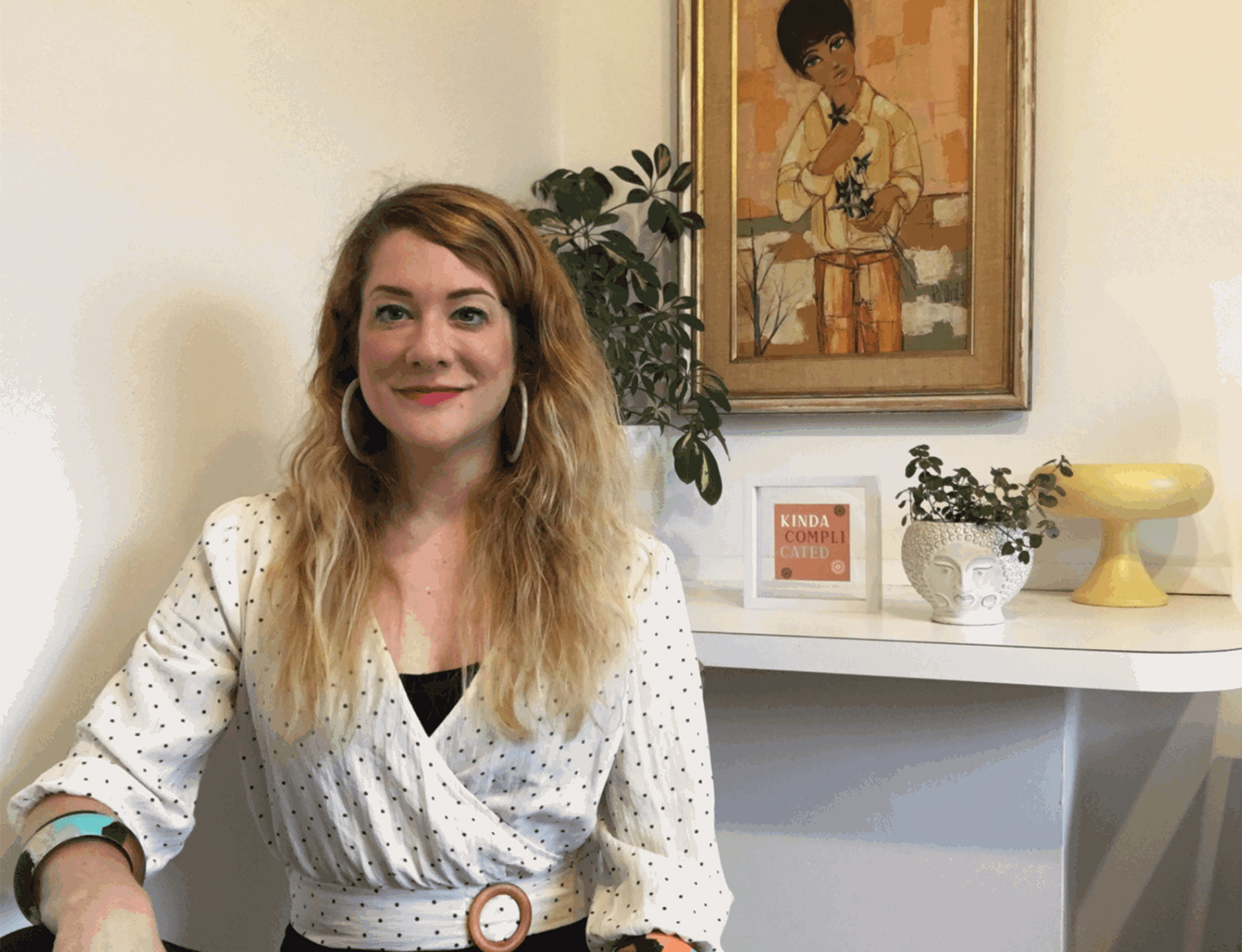
My adventures in perimenopause
Hi. My name is Amy and I’m perimenopausal.
Do you know what perimenopause is? I didn’t know much about it until fairly recently when I embarked on a quest to figure out what this “condition” is all about. By reading a number of over-the-counter medical articles, I’ve learned that it can be a wacky rollercoaster ride caused by a shift in hormones. As a 42-year-old woman, according to the Internet, I’m apparently right on schedule — or perhaps a bit early — to enjoy this midlife experience.
If I sound unsure about how perimenopause works, it’s because I’m unsure about how perimenopause works. The ambiguity is among the primary points I’m aiming to address in my journey to spread awareness for the millions of women who are likely experiencing perimenopause right now — not to mention younger GALs, who are next in line for the rollercoaster.
When I told my doctors about my symptoms and suggested that perhaps I have perimenopause, they neither confirmed the possibility nor gave me any hard-and-fast advice, which made me wonder whether I actually had a problem. But I thought, How could this be? I know I’m quirky, but surely I can’t be the only one going through this. Luckily, some of my lady friends are going through this too, and I’ve discovered a handful of doctors and health specialists writing about perimenopause, like Dr. Rebecca Levy-Gantt. After reading her Medium essay, “Peri-Menopause- AKA ‘The Abyss’,” I now feel a sense of relief knowing that I’m not delusional and also that she recognizes that perimenopause is not a cut-and-dry diagnosis. Dr. Levy-Gantt writes:
When women are in the Age of Peri-Menopause, it is almost always a complicated mix of seemingly random symptoms and processes that are in need of attention. I have heard the following: “I think I’m going crazy”. “My hormones are all out of whack”. “I cannot get out of bed”. “I have suddenly gained 15 pounds”. “I have constant fuzzy brain”. “I’m in a bad mood all the time”. “I don’t know what’s happening to me!” THIS is the gynecologist’s complicated dilemma — and the one where I have had to come up with a true plan of action to help women who find themselves “falling” into this hole.
Before I unload the laundry list of my own symptoms, I want to state that I view myself as a reporter of my own problems. I’m not so much striving to become a medical expert as I am on a mission to make perimenopause a household term. At this point in time, perimenopause is not part of the public consciousness like her sister delights, menopause and PMS.
My perimenopausal symptoms*
- Night sweats, er, more like sweating buckets while I’m sleeping.
Placing this at the top of my list because it’s the most annoying symptom and requires changing my pajamas up to three times a night. - Moodiness and irritability.
Putting this second because it’s most annoying to my family. - Bloating. I’ll sometimes gain up to five pounds in water weight.
- Sleep issues.
I used to pride myself on being a champion sleeper, but as a perimenopausal woman, I’ll often shoot up in the middle of the night, disturbed by the above-mentioned night sweats or an insatiable craving for carbs. - Breast tenderness for longer stretches of time during PMS than I did in my 30s.
And whereas PMS used to strike about three days before my period, I now get to enjoy premenstrual syndrome for up to two weeks before my cycle kicks off. - Midsection fat.
But this also could be attributed largely to the fact that I now work from home in the Chicago burbs, and no longer walk the average daily New Yorker 6 miles as I did in my recent past life. That, or as a mom of twins, I’m stretched out from carrying 11 pounds of human in my belly. - Chronic headaches that I Just. Cannot. Get. Rid. Of.
Luckily, I think I’ve found a form of relief, which I’ll cover here in my “Adventures in Perimenopause.” - Frequent urination (aka, why do I have to pee so damn much?)
This also could be attributed to the fact that I drink like six cups of coffee a day (half-caff, ahem).
*Disclaimers
- Though my symptoms are common among perimenopausal women, perimenopause symptoms are not one-size-fits-all and not every woman experiences perimenopausal symptoms.
- In case you’re wondering whether I’m going overboard with all of this, I want to state that I don’t think perimenopause is the end of the world. I believe there may be a brighter side to perimenopause and menopause, and I’m determined to find it. I should also mention that I have a track record of being the opposite of a hypochondriac. Nothing against medical professionals, but I’ve never particularly enjoyed going to the doctor and, as a former underinsured entrepreneur and freelancer, I managed to largely avoid seeing physicians for the majority of my 20s and early 30s. Though I tend to invest plenty of analysis into topics like work politics and other people’s thoughts and problems, until recently, I don’t usually spend a lot of time analyzing my health.
I digress, and disclaimers aside, the point I’m trying to make is that while I’m usually disinterested in dissecting health stuff in any form, my perimenopausal experience has become increasingly interesting to me because, according to WebMd, the average length of perimenopause is four years, but for some women this stage may last only a few months or continue for a decade. Think about that for a second — a decade? That’s a solid chunk of the 88 years I plan to live.
I also find it intriguing that perimenopause is inextricably tied to Gen X women (of which I am a member), what some folks are referring to as an underdog generation or, in the words of the Pew Research Center, “America’s neglected ‘middle child’ … a low-slung, straight-line bridge between two noisy behemoths.” Gen Xers were born roughly from 1965 to 1984, so we’re currently between the ages of 35–54.
Writes Ada Calhoun in “The New Midlife Crisis: Why and How It’s Hitting Gen X Women” on O.com in 2017: “Generation X has long been an outlier. Wedged in between millennials and baby boomers, Gen Xers (ranging from 50 to 65 million Americans, depending on which birth years you count) are far smaller than the generations on either side.”
P.S. I’m looking forward to Ada’s Why We Can’t Sleep: Women’s New Midlife Crisis. But, after reading her eye-opening essay, I’m also trying to think optimistically, hoping that we can change the thinking from “midlife crisis” to “midlife re-emergence” or something.
Who’s talking about perimenopause?
Though I missed it at the time, Ada Calhoun kinda blew up the Internet with her O essay, and I’m glad she did. Speaking of Oprah, I discovered that the Queen of Media was, not surprisingly, a pioneer in raising perimenopause awareness. In a February 2002 Oprah episode, she interviewed women who said they experienced perimenopausal symptoms for the first time aged 31, 37, 38, and in the mid-30s. The Guardian reported that the viewer response was so massive that the Oprah.com website crashed shortly after the show aired.
But that was 17 years ago — what happened after that? According to the Guardian article, many doctors were not impressed with the rude awakening that Oprah ignited. Writes Lucy Atkins in “Hot and Bothered”:
They say that this buzz is more about book and supplement sales than clinical reality (one US market-research survey showed that sales of soy isoflavone supplements — often recommended in perimenopause books — were three times higher in 1999 than in the previous year). These days, according to Dr Wulf Utian, a reproductive endocrinologist and executive director of the North American Menopause Society, such talk is largely just “an attempt to create a new medical condition”.
I get it. Oprah has a slight track record with getting people excited about new things, but that doesn’t necessarily mean the hype wasn’t warranted. With this in mind, part of my Adventure will be finding out how “official” perimenopause is.
For now, I’ma keep talking to my ladies about this, because they’re also going through perimenopause.
This article was originally published on Jumble & Flow in 2019.
New to perimenopause? Read our empowering guide to everything you need to know about this under-understood phase of life.
Looking for relief for perimenopause symptoms? Read 15 of the best perimenopause supplements, vitamins, drugs, hormones, and foods
Sorry, the comment form is closed at this time.





Lara
SO glad I just found your blog! I literally just blogged about this topic and why hardly anyone is talking about it. Us GALs (love that by the way) have to stick together!
Pingback: Real talk about this menopause sh*t - Lewis Center Mom
val r
Dear Amy,
Thank you so much for writing this blog!
I was just as flummoxed as you in regards to not understanding what was going on with my mind and body. Super confusing times. Nice to know I’m not the only one feeling like they are being invaded by aliens taking over control of my body! LOL.
Sally
I am so relieved to have finally found some “support” emotional more than ever! I am a 41 year old(Born Nov 1978) and just this month had heightened symptoms of night sweats, breast tenderness for over 15 days prior to my period, this “waking-up” ever so suddenly in the midd le of the night and in the inability to fall back to sleep! I almost cried this morning as i wasnt sure wasnt happening. My husband is my biggest supporter and did all he could to pacify me. I started taking a sleep supplement called “relax plus” which is jsut an all natural melatonin and herbal concoction in a capsule. However, even popping that in the night hasnt helped me! Does anyone have any advice for me before i jaunt on to see a doctor who may not even get me ? I’m really hurting for sleep!
Amy Schroeder
Hi Sally, thank you so much for sharing your experience. I’m right there with you! I take two Melatonin tablets and an over-the-counter sleep aid.
For other women reading this, what works for you? We also have a this blog post: “How to get quality sleep when you’re in perimenopause” https://jumbleandflow.com/2019/05/28/sleeping-while-perimenopausal/